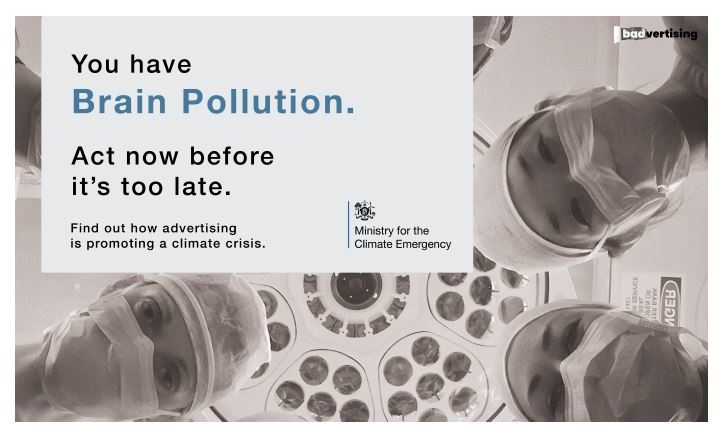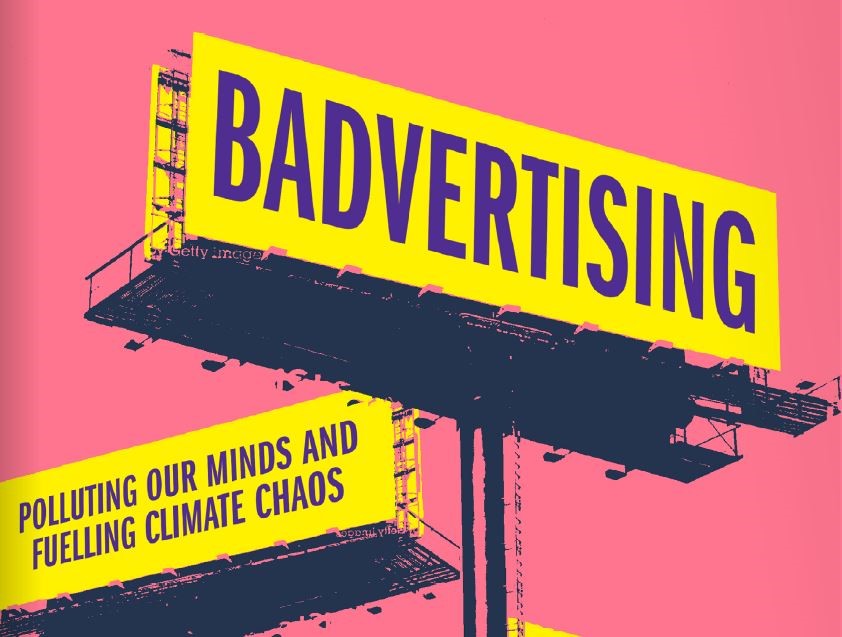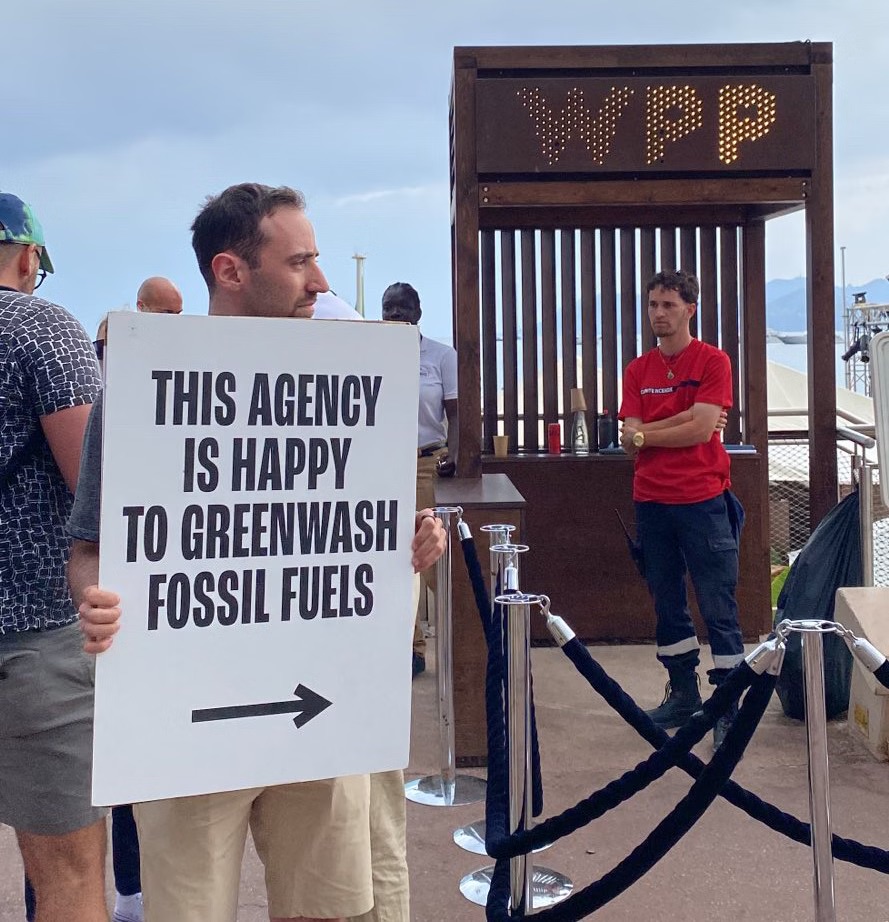On Monday, three apparently unconnected things happened.
First, news broke that London Mayor Sadiq Khan had refused planning consent for the MSG Sphere in Stratford. This 100-metre illuminated globe would have towered over nearby buildings like a baleful, modern-day Eye of Sauron, with 190,000 square feet of LED surface continually beaming corporate marketing messages across the city.
Brands advertising on the Sphere would have been visible from space, but more proximally, from the windows of the hundreds of residents’ homes caught in its oppressive glow, lying just a few feet away on three sides of the site. MSG had generously proposed to distribute blackout blinds to local serfs, but in the end their application was rejected on the grounds of the inescapable light pollution that would pour over people and wildlife. Even when switched off, visualisations of the structure depict the pitch black Sphere as a brooding, malevolent presence, resembling nothing more than a titanic bubo breaking out on the East London cityscape.
The similarity is fitting. Buboes on your skin are a disturbing outward symptom that you have contracted a potentially deadly plague and should seek immediate treatment. Likewise, the MSG Sphere, had it gone ahead, would have signalled the city’s supplication to a malaise that may prove to be just as deadly: untrammelled, debt-fuelled, consumer capitalism.
The second interesting thing that happened on Monday was that Oxfam published a new report finding that the richest one percent of the global population are now responsible for carbon emissions equivalent to those of the poorest two thirds, and are burning through the planet’s remaining carbon budget at a frightening rate.
But the report is also clear that it’s not just the super rich elite; the developed world’s middle classes are squarely in the top 10 percent by global income, a group that is collectively responsible for half of humanity’s climate impact. In the UK, the top 10 percent by income have carbon footprints 15 times those of the poorest 10 percent, with transport — mostly cars and flights — and consumer products such as electronics and furniture the biggest differentiators. As Oxfam notes, “their emissions are driven by relentless advertising and an economic system geared towards continued overconsumption.”
The report warns, as so many have done before it, that without a rapid and equitable reduction in carbon emissions, the world is facing climate breakdown which puts “the future of life on earth at risk”.

Polluting our Minds
Averting this oncoming planetary collapse requires that aggregate consumption, in particular of intrinsically high carbon goods and services such as flights and SUVs, must fall. But each and every day, the richest one in ten of the world’s population are targeted with thousands of messages by corporations urging us to consume more of these things. This is Badvertising, which is also the name of the third interesting thing that happened on Monday — the publication of our new book Badvertising: Polluting our Minds and Fuelling Climate Chaos by Pluto Press.
In it, we make the case that the advertising industry is playing a pivotal, but so far largely unacknowledged, role in driving climate collapse, by preventing us, collectively, from thinking clearly about the nature of the problem and its remedies.
Advertising is designed to get inside our heads and manipulate our behaviour in ways that may or may not be in our best interests. When it comes to the set of high carbon behaviours, like frequent flying or buying and driving SUVs, that are rare globally but have become commonplace amongst the richest 10 percent, advertising is positively pathogenic. Seen in the context of impending climate breakdown, high carbon advertising acts on people much like the cordyceps ‘zombie’ fungus does on the tropical ants it infects — taking control of their minds and steering them to a convenient spot for spore-spreading mushrooms to erupt from their brains.
Change is hard, and bringing about population level behaviour change at the scale and pace that the climate crisis demands is going to be extremely difficult indeed. If we want to avoid coercive measures as far as possible, we need to think creatively, and quickly, about how demand for the products and services for which there is no viable low-carbon alternative can be brought down fairly amongst the global middle classes. Thankfully there is one very obvious, low-regrets starting point: stop making the problem worse by actively stimulating demand for these goods.
There are powerful parallels with our societal response to the news, suppressed for decades by the tobacco barons but eventually made public, that smoking causes cancer and death. Recognising that large parts of the population had become dependent on tobacco products, and an immediate ban would therefore be socially impossible, the government sought instead to prevent new victims becoming ‘infected’, by ending the advertising and promotion of these damaging products. This approach leaves consumer choice open, and the products available for sale, but removes one of the key sources of pressure to consume them.
Behaviour Change
British Prime Minister Rishi Sunak’s notorious recent ‘Seven Bins’ speech, in which he invented a range of climate policies and then pretended to have ‘scrapped’ them, was in fact a thinly veiled attack on the guidance of his government’s own statutory advisors, the Climate Change Committee, who have warned for years that all the evidence points to a need for the government to somehow act to reduce demand for things like red meat and flights, if it wants to meet its net zero targets.
Indeed, when the Conservative government published their Net Zero Strategy in 2021, they also released a paper from the ‘nudge unit’, aka the Behavioural Insights Team, which set out the principles for successful behaviour change initiatives needed to achieve the strategy. But within hours, the paper had been withdrawn and an official statement repudiating its existence hastily issued: “We have no plans whatsoever to dictate consumer behaviour in this way. For that reason, our Net Zero Strategy published yesterday contained no such plans.”
The irony is that the British population is already subject to an unrelenting headwind of messaging from corporations that is expressly intended to ‘dictate consumer behaviour’, but for profit, rather than to achieve critical public policy goals. It seems a grotesque and reckless philosophy to insist that only commercial interests have a legitimate role in shaping our behaviour, given what is at stake. Left unaddressed, this warping of our collective consciousness by fossil industry propaganda will make it impossible to achieve the civilisation level transformation required for life as we know it to survive the 21st century.
Ending the promotion of own destruction will, we argue, signal the moment when the UK, and hopefully the wider over-consuming world, has finally begun to come to terms with what the climate crisis means for our society, and way of life, as a species on this planet. As the fog lifts, we may realise at last not only how much danger we are all in, but that together, we have the capacity for collective action to get ourselves out of it.
Readers of DeSmog can get a 25 percent discount on Badvertising: Polluting our Minds and Fuelling Climate Chaos by Andrew Simms & Leo Murray from Pluto Press using the code: BADVERTISING25
Leo Murray co-founded climate action charity Possible, where he is currently director of innovation,and pioneering solar rail enterprise Riding Sunbeams. Follow on X @crisortunity.
Andrew Simms is co-director of the New Weather Institute, co-founder of the Badvertising campaign, the Rapid Transition Alliance and assistant director of Scientists for Global Responsibility. Follow on X @AndrewSimms_uk or Mastodon. @[email protected].
Subscribe to our newsletter
Stay up to date with DeSmog news and alerts







